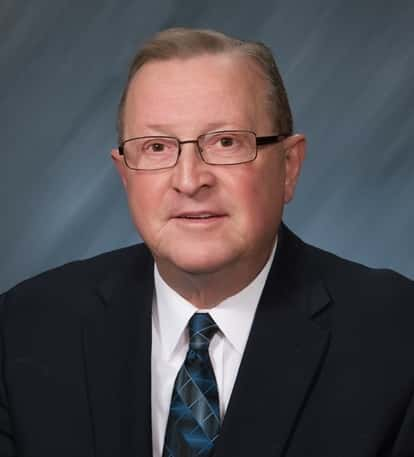
BISMARCK, N.D. (NewsDakota.com) – The following is District 24 State Senator Larry Robinson with his North Dakota Legislative Report.
“In the next few weeks, our farmers will wrap up another harvest season. Needless to say, in this area, it has been a very interesting and challenging season. Many of our farmers struggled getting their 2019 crop off so they were able to get the 2020 crop seeded. In many areas, much of the land was not planted at all. In the end, the ground that was planted yielded a fairly good wheat crop and there have been good reports on soybeans as well. Farmers struggled with too much water, drainage issues and washed out roads.
The statewide picture was much different. Much of the western part of the state suffered from too little water. Crops suffered, and in many areas hay production was significantly impacted. It has been a familiar situation of too much water in some places and too little in others. Locally, we are struggling with too much water in Meadow Lake, Sanborn Lake, Ten Mile Lake and several other areas throughout the county. Many acres that were used for grain and hay production are now underwater. The cost to our farmers and ranchers is real!
I am a member of the Legislative Water Topics Committee. We met in Fargo last week to review the status of a host of water projects across the state of North Dakota. Funding for the Water Commission and Water Projects comes from the Oil Extraction Tax. Unfortunately, due to a decline in oil production and oil prices, oil extraction tax collections have been far short of projections. In fact, the collections have been so short, the Commission had temporarily put allocations on hold. The original projections listed $433,040,803 for oil extraction tax collections. As a result of the low production and low oil prices, collections are now expected to be in the $293,353,000. When taking current expenses and obligations into consideration, there remains approximately $83,353,096 for new allocations. The current obligations cover projects that are currently underway and the operation of the Water Commission itself.
Unfortunately, when projects are put on “hold” due to the lack of available funding, the costs continue to increase due to inflation. That has driven project costs even higher. Our committee reviewed the status of the Fargo Area Flood Control; the Fargo Diversion; and Red River Water Supply project. These projects are major and are very expensive. Additionally, there are projects statewide including Rural Water, Municipal Water Supply, Northwest Area Water Supply, the Minot Flood Control Project, Southwest Water, Sheyenne River Flood Control, and many others. Needless to say, the competition for dollars to address water needs is intense. Water is absolutely critical for all aspects of life. We have some folks who have been waiting 16 years or more for drinking water in western North Dakota. That is an unacceptable situation! In this area, we have folks that have been driving through water to get to their farmsteads. Others have had to take detours adding miles to their trips to town and back due to washed out roads and roads that are under water. These issues have to be addressed. These roads are used to transport our commodities to market, for medical emergencies , for our school buses, and so much more.
The Water Commission will be meeting soon and will likely make some allocations to projects that are awaiting funding with the dollars they have on hand. Other projects will have to wait until additional funding becomes available. North Dakota Winters set the stage for shorter construction seasons, further complicating the situation.
As we approach the 2021 session of the legislature, there will be renewed focus on the need to fund water projects across the state. Whether the project be cost sharing for drainage issues, rural water construction/expansion, flood control or municipal water, the needs will not go away. Some have suggested that due to the shortage of Oil Extraction dollars, the legislature should consider addressing some of these projects via bonding. Most folks are not excited about bonding, but the argument can be made that with attractive interest rates perhaps bonding could be at least a partial answer. We do know that delaying the construction of these projects sets the stage for cost increases due to inflation. That is not something folks are excited about either. The Fargo Diversion project alone will end up costing us many millions more due to delays in construction due to a lack of funding and the resulting inflationary increases.”
Keep in touch with Larry Robinson at lrobinson@nd.gov.
